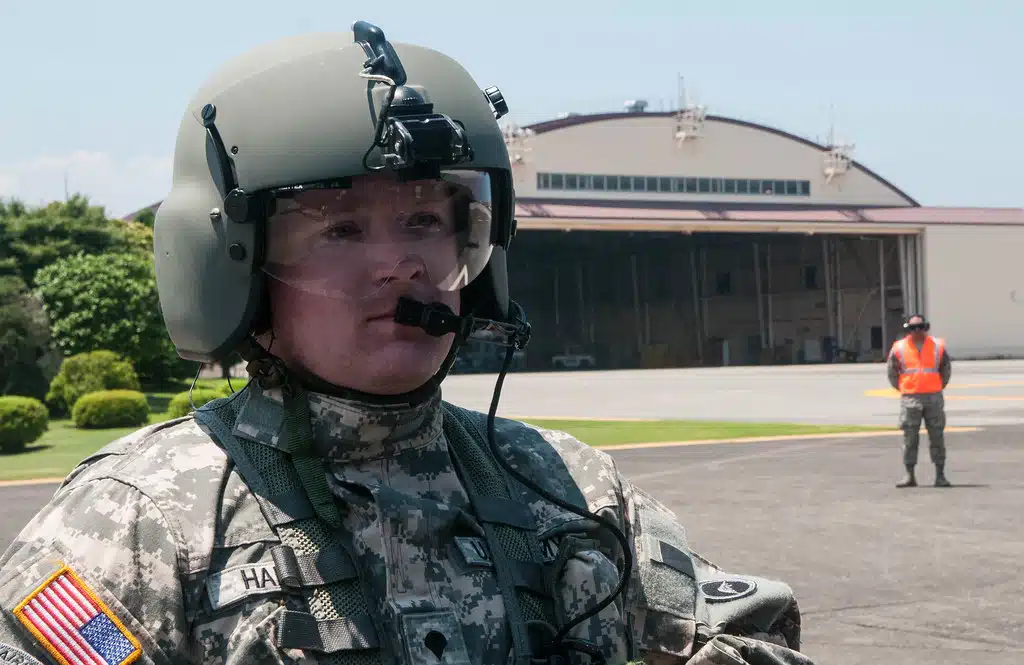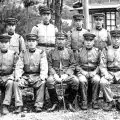1. Introduction
The U.S.-Japan alliance is one of the most important strategic relationships in the world today. The United States has had a military presence in Japan since the end of World War II, and it has been integral to maintaining peace and stability in the region. But why are U.S. troops still in Japan? This article will examine this question by looking at the historical context of U.S.-Japan relations, Japan’s strategic location in the Pacific, the role of U.S. troops in Japan, and other factors that have kept U.S. forces stationed there for more than 70 years.
2. Historical Context of U.S.-Japan Relations
The United States and Japan have had a long and complicated history since first establishing diplomatic relations in 1853 following centuries of isolationism from the rest of the world known as sakoku (“closed country”). After World War II, Japan was occupied by Allied forces led by General Douglas MacArthur until 1952 when a formal peace treaty was signed between the two countries which officially ended their war with each other and opened up trade between them once again. As part of this agreement, U.S forces were stationed in Japan to maintain stability and security in the region as well as to serve as a deterrent against potential aggression from other countries such as North Korea or China.
3. Japan’s Strategic Location in the Pacific
Japan is located at a strategic crossroads between East Asia and North America, making it an important ally for both regions from a geopolitical perspective. It is also home to key ports such as Yokosuka Naval Base which serves as an important base for American ships and submarines operating in Asian waters as well as for hosting joint military exercises with allies such as South Korea or Australia.Additionally, its proximity to countries like China or North Korea make it an ideal location for monitoring potential threats from those nations or responding quickly if necessary.
4 The Role of U.S Troops In Japan
The primary role of U.S troops stationed in Japan is to serve as a deterrent against any potential aggression from foreign powers such as North Korea or China who may seek to expand their influence into Japanese territory.Additionally, they provide support to Japanese Self-Defense Forces (JSDF) during times of crisis or emergency,while also helping maintain regional stability through joint military exercises with other allies.Furthermore, they act as an important symbol of friendship between two nations that were once enemies during World War II.
- Used Book in Good Condition
- George Trombley (Author)
- English (Publication Language)
- 376 Pages - 08/22/2014 (Publication Date) - Learn From Zero (Publisher)
- Ken Fukuyama, Yuki Fukuyama (Author)
- English (Publication Language)
- 246 Pages - 10/11/2022 (Publication Date) - Independently published (Publisher)
- Used Book in Good Condition
- Sumiko Uo (Author)
- English (Publication Language)
- 6 Pages - 01/01/2005 (Publication Date) - QuickStudy (Publisher)
5 The Status Of Forces Agreement (SOFA)
The Status Of Forces Agreement (SOFA) is an agreement between the United States and Japan that governs legal matters involving American servicemen stationed on Japanese soil.It was signed in 1960 after several years of negotiations between both governments,outlining rules regarding taxation,immigration,jurisdiction over criminal cases involving US personnel,compensation for damages caused by US personnel,etc.This agreement has been revised several times over the years but remains integral to maintaining peace and security between both countries.
6 U S -Japan Security Alliance
The United States-Japan Security Alliance is another important factor that has kept US forces stationed on Japanese soil since World War II.This alliance allows both countries to cooperate on matters related to defense,intelligence sharing,counter-terrorism efforts,disaster relief operations,etc.It also serves as a symbol of friendship between two nations that were once enemies during WWII but now share common goals when it comes to regional security and stability.
7 North Korean Threat And Japans Defense Spending Cap
North Korea’s nuclear weapons program has been one factor that has kept US troops stationed on Japanese soil despite calls from some quarters for them to leave due to their costliness.This threat continues despite recent diplomatic efforts aimed at denuclearization which have yet to bear fruit.Additionally, due to constitutional restrictions imposed by Article 9 which limits defense spending only 1% GDP annually,Tokyo is unable rely solely on its own military capabilities for protection thus making US forces even more necessary for its security needs.
8 Japans Growing Military Presence In The Region
Despite constitutional restrictions imposed by Article 9 which limits defense spending only 1% GDP annually Tokyo has been gradually increasing its military presence throughout region through investments new ships submarines aircrafts etc As result this growing power projection capability makes US presence less necessary certain areas while still being essential others where JSDF lacks capability respond quickly effectively any potential threats
9 Conclusion
>
In conclusion it clear why US troops still remain stationed on Japanese soil despite calls some quarters their removal While costliness these forces cannot ignored their contributions maintaining peace stability region are invaluable Given historical context strategic location Pacific role providing deterrence support JSDF Status Forces Agreement Security Alliance North Korean threat Japans defense spending cap growing military presence region all combine keep American forces place ensuring continued partnership two former enemies
- Used Book in Good Condition
- George Trombley (Author)
- English (Publication Language)
- 376 Pages - 08/22/2014 (Publication Date) - Learn From Zero (Publisher)
- Ken Fukuyama, Yuki Fukuyama (Author)
- English (Publication Language)
- 246 Pages - 10/11/2022 (Publication Date) - Independently published (Publisher)
- Used Book in Good Condition
- Sumiko Uo (Author)
- English (Publication Language)
- 6 Pages - 01/01/2005 (Publication Date) - QuickStudy (Publisher)
Why is the U.S. military still in Japan?
US troops are stationed in Japan under the 1960 Treaty of Mutual Security and Cooperation between the US and Japan. The USFK is headquartered at Yokota Air Base.
Why are Marines stationed in Japan?
The temporary deployment of U.S. Marines to the new base in Japan may also encourage closer defense coordination between Tokyo and Washington as the militarily stronger Japan seeks to play a bigger role in its decade-long alliance with Washington.
Why is Japan not allowed to have a military?
Why is Japan prohibited from participating in any war? Under the post-war constitution Japan was not allowed to have a brutal military force. Article 9 declares that the Japanese people regard war as a sovereign right of the country and the threat or use of force to settle international disputes.
Does Japan rely on the U.S. military?
Japan which renounced its right to make war after its defeat in World War II has relied on the United States for protection for the past seven decades. In exchange for its promise to defend the country the United States receives bases that allow it to maintain a large military presence in East Asia.
How many US soldiers are in Japan today?
According to defense figures the United States has about 56000 active duty military personnel in Japan. March 26 2022
Is Japan a close ally of the US?
Japan and the United States are strong partners who share core values and strategic interests with Japan-US security agreements.







